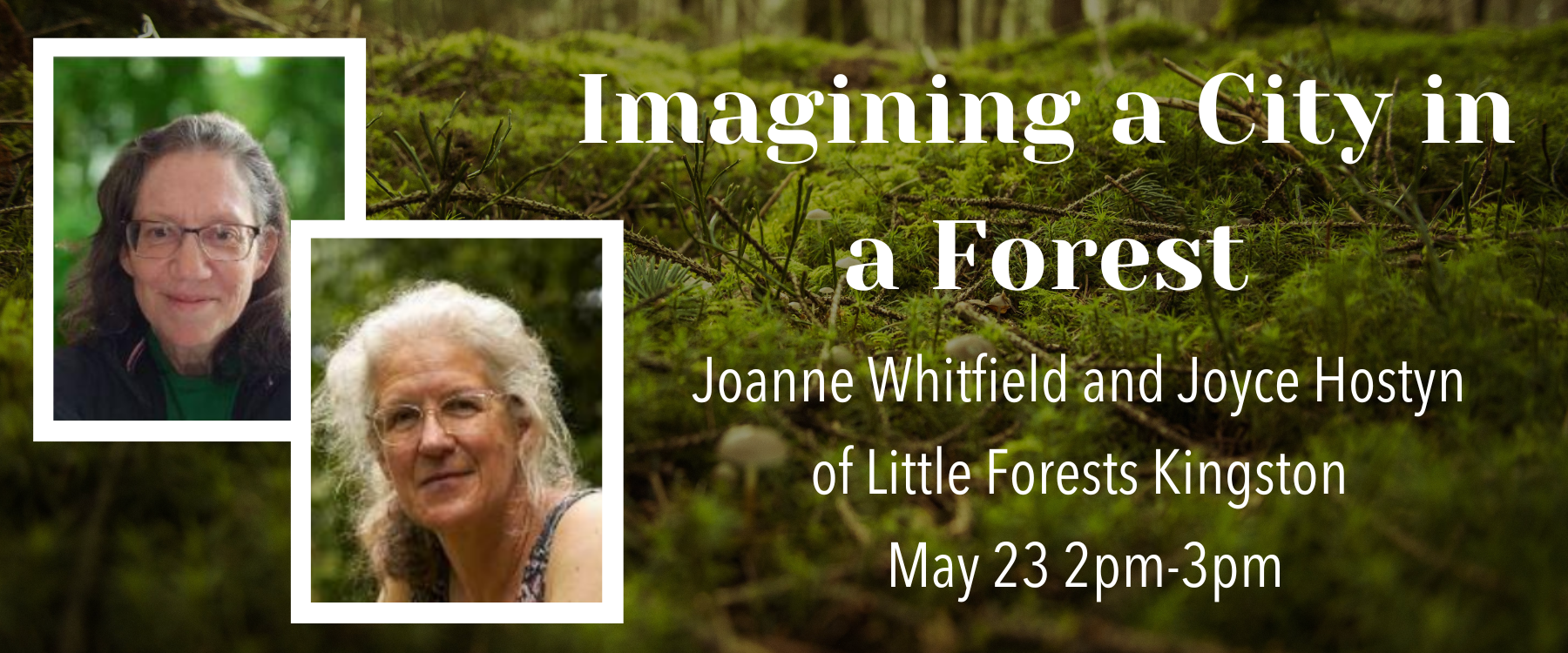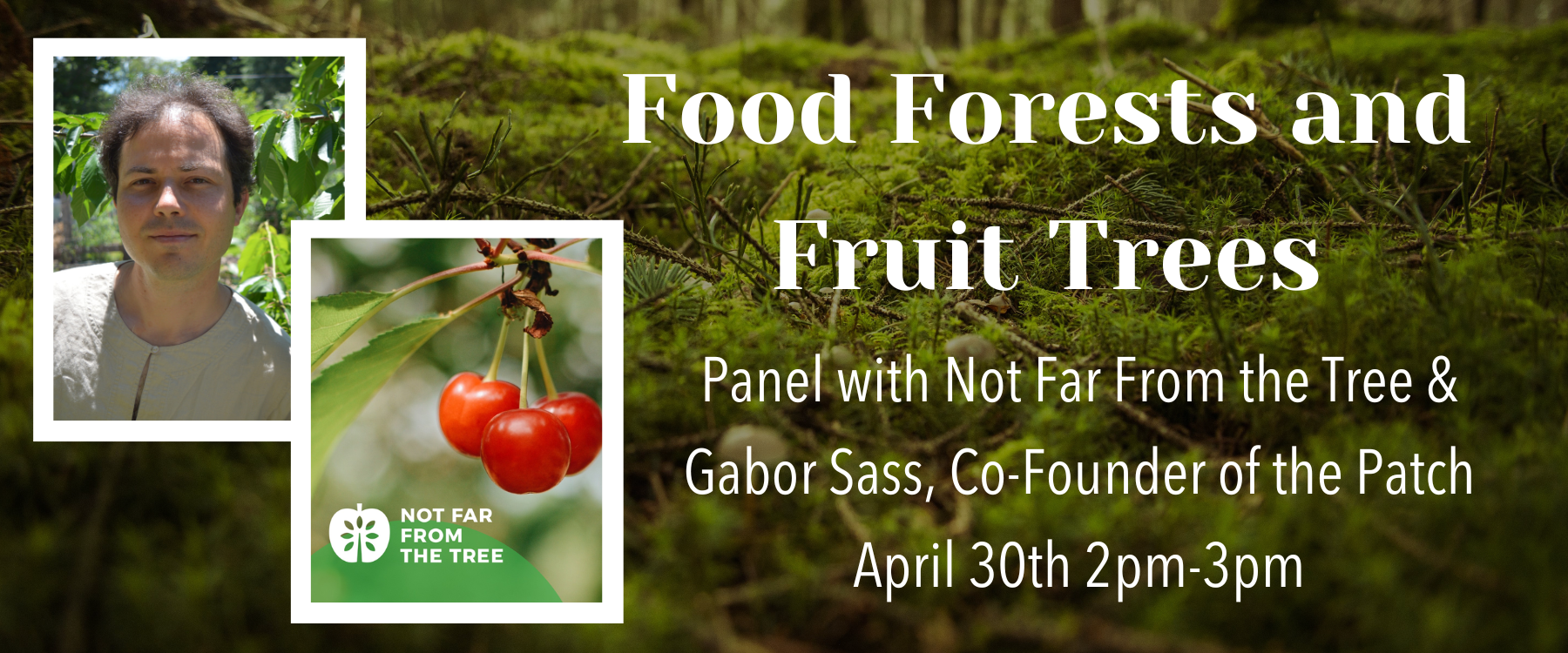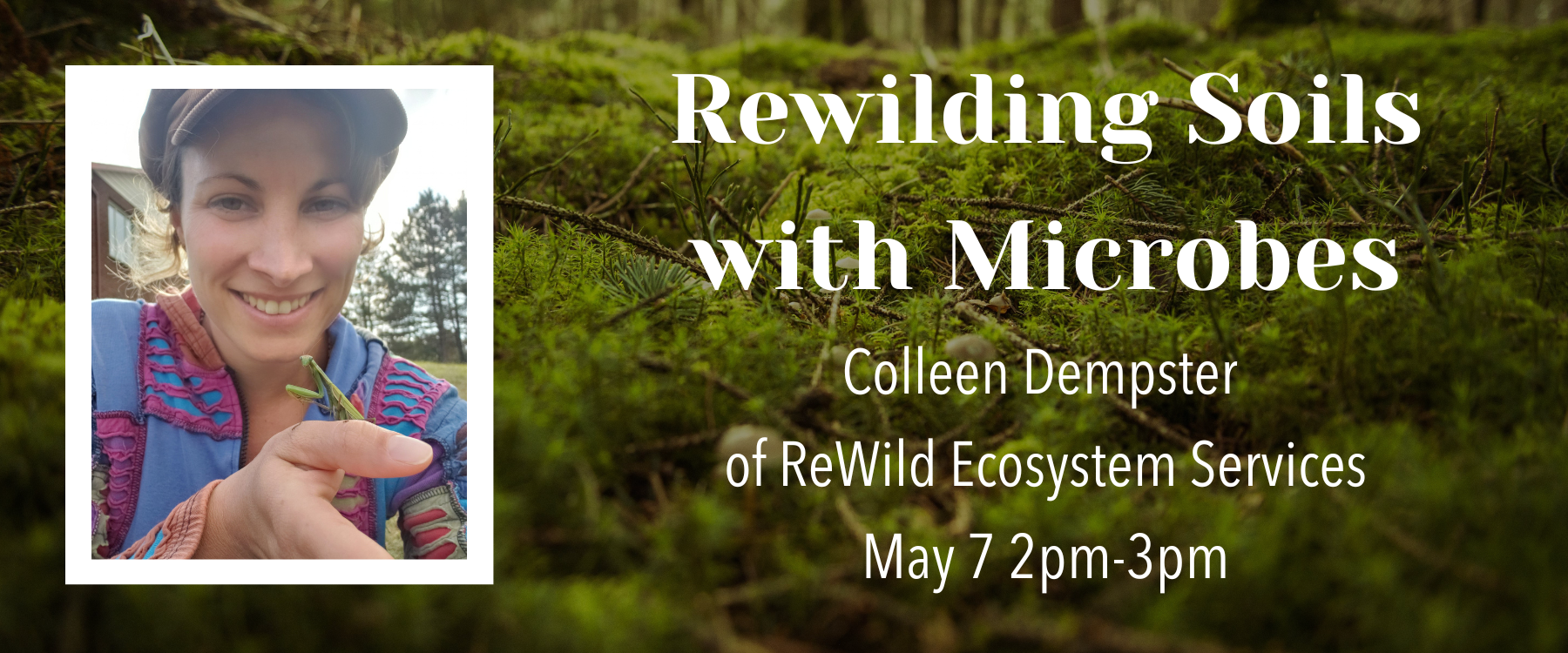
Urban Foresters Spotlight is a educational series comprised of 6 exciting webinars, spotlighting the regional organizations doing important groundwork in building our urban forests. Topics range from community tree nurseries and urban orchards to soils.
Upcoming Events
- About Michael
-
Michael Henry is a forest ecologist and author of the books Ontario’s old-growth forests, and Old-growth forest walks: 26 hikes in Ontario’s Greenbelt (in press). He leads the Algonquin old-growth forest project, which has found unprotected forest over 400 years old in Alqonquin Park. He’s also working to expand provincial parks in Temagami and the Spanish Forest, and to raise awareness about solutions to invasive species.
- About the presentation
-
Planting a tree is a hopeful act, and trees that are planted today could live for hundreds of years. In this presentation Michael Henry will explore what it means to be hopeful in an era of climate change, deforestation and invasive species, based on his three decades in the conservation movement and his encounters with trees that have lived for 400 years or more. The presentation will include photos and stories of these ancient trees as well as tips for recognizing old trees, which can be harder than you’d think.
Past Events
- About Little Forests Kingston
-
Little Forests Kingston brings people together to imagine a multispecies city, one where all beings can find what they need to thrive. To this end, we help local families, groups and neighbourhoods to plant Little Forests and Pocket Forests while they learn about the rich, biodiverse world they are welcoming back into their lives. Based on the Miyawaki method and Indigenous concepts of personhood, we are working to transform Kingston into a City in a Forest.
- About this Presentation
-
Little Forests Kingston has been planting Little Forests in the Kingston area since its formation in 2021 with the aim of planting 3 Little Forests every year. Last year, we planted almost 2700 trees in three Little Forests, and over 200 in 12 pocket forests. In 2024, in partnership with the City of Kingston, we’re helping citizens plant 50 pocket forests at their homes. In this talk, learn how we have used the Miyawaki method to plant these dense, native forests and engaged hundreds of Kingstonians in this effort. We’ll discuss the benefits of these forests, our method of planting, the difference between a Little Forest, a pocket forest and a pocket prairie and why these efforts are so healing for all
Secrets of Fruit Tree Care:
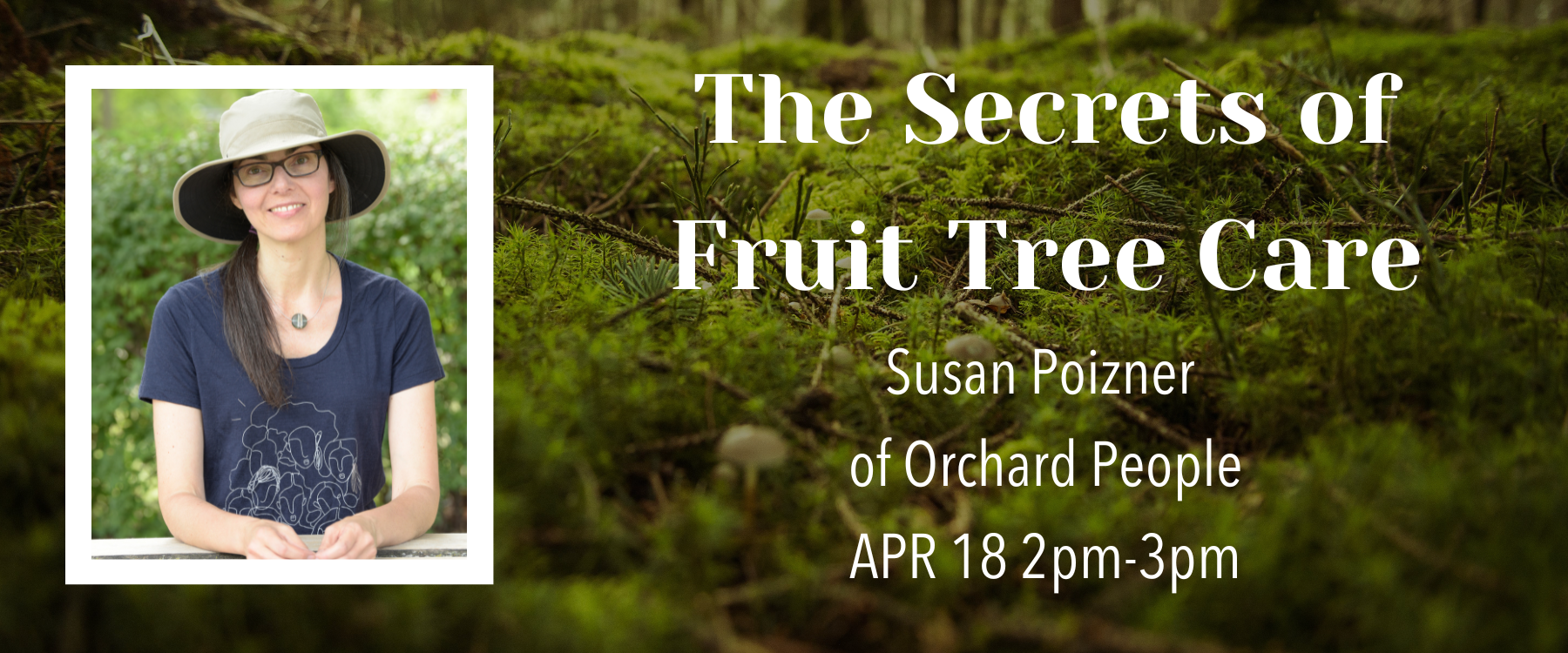
- About the Presentation
-
More North Americans are planting fruit trees in their gardens, parks or on company land. But often new growers are disappointed. Without proper care, young fruit trees are vulnerable to pest and disease problems and often produce poor quality fruit. What many new growers don’t realize is that in order to thrive, fruit trees need skilled hands-on care including correct annual pruning, fertility management and pest and disease prevention. Join OrchardPeople.com's Susan Poizner in this fruit tree care workshop, where she will share 10 tried-and-true secrets to success in growing healthy, successful organic fruit trees.
- About Susan
-
Susan Poizner is an urban orchardist and fruit tree care educator from Toronto, Canada. She's the founder of the award-winning website OrchardPeople.com and the author of "Growing Urban Orchards," "Grow Fruit Trees Fast," and "Fruit Tree Grafting for Everyone." As the host of the "Orchard People" podcast, Susan shares insights on organic fruit tree care, food forests, and permaculture. Her goal is simple: to empower everyone to successfully grow fruit trees. An ISA Certified Arborist, Susan also travels across North America as a keynote speaker, teaching gardeners, arborists and home growers how to grow fruit trees that thrive.
Food Forests and Fruit Trees
- About the Panel
-
Join this webinar with Julia Girmenia and Rachel Lissner from Not Far From the Tree and Gabor Sass and learn about building urban food forests, the importance of localized food systems and sustainability. Get a peak into the Wood Street Park and West Lion's park food forests and hear about social food programs from Not Far From the Tree.
- About our Presenters
-
Gabor Sass is a recognized environmentalist, scientist, consultant, university instructor, writer and community activator who has lived in London with his family for 20+ years. Gabor is a part-time Assistant Professor at Western University where he teaches undergraduate and graduate courses in environmental science, urban sustainability and biogeography. He is co-founder of the PATCH, a not-for-profit advancing urban agriculture work in London. Gabor's community building includes initiatives like the Food Forests in Wood Street Park and West Lion's Park and the Pollinator Pathways Project, neighbourhood projects that have introduced residents to urban agricultural practices and current environmental concerns. Gabor is a recognized environmentalist in London, receiving the Mayor’s Honour Roll for the Environment in 2019, serving as London Public Library’s inaugural Environmentalist-in-Residence and appearing frequently as speaker and panelist at public events. Gabor and his family work at implementing sustainable practices into their lifestyle wherever they can.
Julia Girmenia (she/ her) has been the project director of Not Far From The Tree since 2021. Over the past decade, she has collaborated with organizations across Canada to develop and implement public programming in the arts and urban development sectors. Prior to joining Not Far From The Tree, Julia made significant contributions at Evergreen, both at the national and Brick Works site in Toronto, as well as at UforChange, where she played a pivotal role in building capacity for the organization.
Rachel Lissner (she/her) is the program manager of Not Far From The Tree, Toronto's fruit-picking project. She joined the team in 2022 as a longtime volunteer with the organization. Rachel has worked with a variety of organizations that strive to make Toronto a fun and thriving city for everyone, including Cycle Toronto, Jane's Walk, Waterfront Toronto, the Centre for City Ecology, and Progress Toronto. In her free time, she likes to grow vegetables, engage with nature, and explore Toronto through food.
- About the Presentation
-
Rewilding soils entails returning native, diverse, and resilient soil microorganisms to areas where they have been destroyed. Under the microscope I can diagnose that most urban soils lack a complete soil foodweb, which means the soil is unable to cycle nutrients, decompose organic matter, and build soil structure on it’s own. As such, many gardeners, farmers and arborists have turned to artificial means of boosting nutrients and controlling their growing environment. The use of synthetic fertilizers, pesticides and herbicides further destroys the delicate soil microbes, resulting in a dependency on more chemicals. This cycle can be broken, but it takes work. It involves using overlapping principles of permaculture, including fostering an environment that is conducive to soil microbes, and at times inoculating soils with soil microbes.
In this presentation I will explore options for restoring soils naturally. I will discuss the pros and cons of various soil amendments including: compost, compost teas, compost extracts, mycorrhizal inoculants, and other shelf-stable “bugs in a jug”. I will teach you how to distinguish what is “snake oil” and help you design a program for your landscape that will really work. My goal is to make working with compost and liquid biological amendments successful and accessible to everyone.
- About Colleen
-
Colleen Dempster is passionate about restoring the environment. In recent years she turned her attention to “rewilding” soil, and in turn boosting the health of plants and people. She obtains a Masters in Environmental and Life Science from Trent University, a Post-graduate Certificate in Ecosystem Restoration from Niagara College, is an ISA-certified certified arborist and is certified by Dr. Elaine Ingham’s Soil Foodweb School as a laboratory technician. She has worked to help arborist companies develop compost tea programs, and now works as an educator at Fleming College and as an independent consultant who makes high quality compost, teas and extracts from her home in rural Uxbridge.
The County of Wellington's Green Legacy Programme
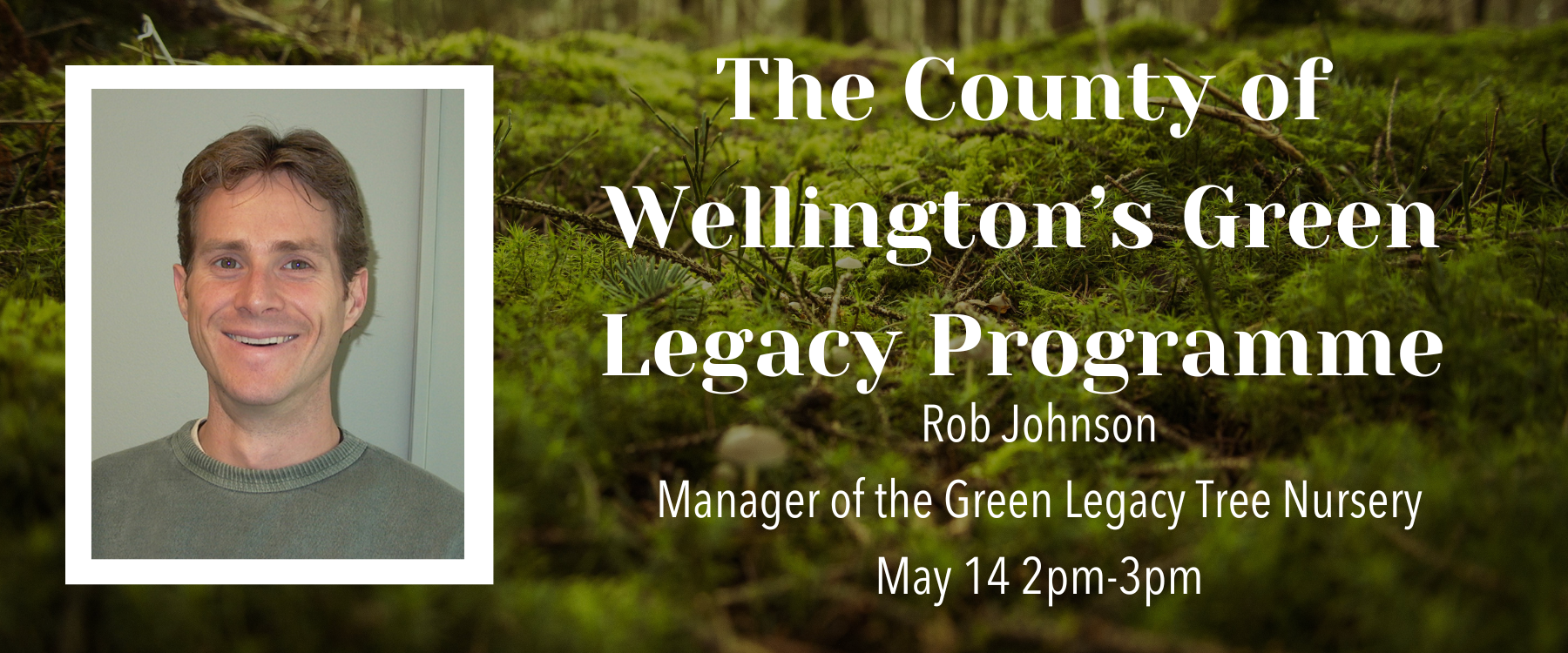
- About the Presentation
-
Rob Johnson will give an overview of the Green Legacy Programme that gives out over 170,000+ trees a year, in 2023 went over 3 million trees and in 2024 celebrates 20 years. The Green Legacy has two nurseries in the County of Wellington that have over 20,000 volunteer hours logged each year. The Green Legacy has several programmes from living snow fence installation to windbreaks for farmers to increase crop yields to school programmes involving students from kindergarten to grade 8. Rob will discuss how trees can be utilized on the farm to increase crop yield, sequester soil carbon, and recycle nutrients within the system.
- About Rob
-
Rob Johnson has been involved in environmental restoration for over 25 years and has been with the County of Wellington since 2004. He is currently the Manager of the Green Legacy Tree Nursery, which is a community based nursery that grows trees to improve the forest cover of the County of Wellington. Prior to working with the County, Rob worked with Friends of the Rouge Watershed and managed and operated a native plant nursery.
- Schedule

